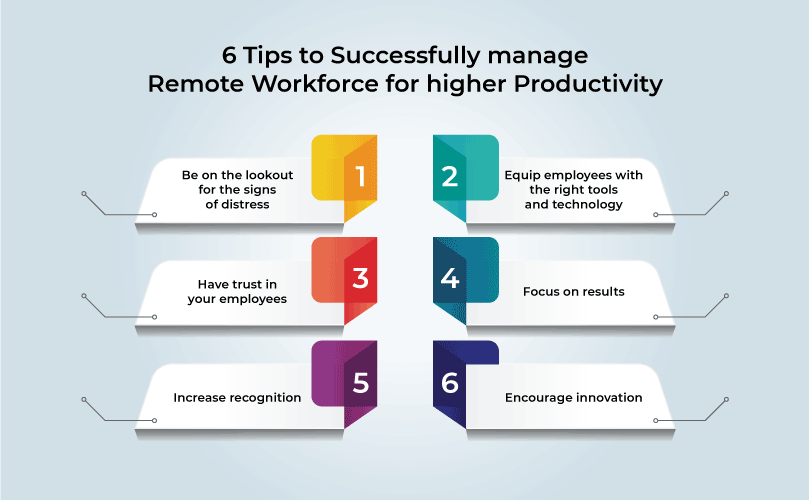The Future of Remote Work: Benefits and Challenges
Remote work has rapidly evolved from a rare perk to a widespread norm, reshaping the traditional workplace landscape. This shift, accelerated by the global pandemic, has brought about significant changes in how businesses operate and how employees perceive work. While remote work offers numerous benefits, it also presents several challenges that both employers and employees must navigate. This article explores the future of remote work, highlighting its advantages, addressing its challenges, and offering strategies for effective management in this new era.
Benefits of Remote Work

Increased Flexibility
One of the most significant benefits of remote work is the flexibility it provides. Employees are no longer confined to the 9-to-5 schedule and can often set their hours. This flexibility allows individuals to better balance their personal and professional lives, leading to increased job satisfaction and overall well-being. For example, parents can be more present for their children, and those with personal commitments can manage their time more effectively.
Cost Savings
Remote work can result in substantial cost savings for both employees and employers. Employees save on commuting expenses, work attire, and meals, while employers can reduce overhead costs related to office space, utilities, and office supplies. These savings can be redirected towards other important areas, such as employee benefits, technology upgrades, or business growth initiatives.
Access to a Global Talent Pool
With remote work, companies are no longer limited by geographical boundaries when hiring. This opens up a global talent pool, allowing businesses to find the best candidates regardless of their location. This diversity can lead to more innovative ideas and solutions, enhancing the company’s competitive edge. Additionally, it provides opportunities for employees in regions with limited job prospects to work for prestigious organizations worldwide.
Improved Productivity
Contrary to initial skepticism, many studies have shown that remote work can lead to improved productivity. Without the distractions of a traditional office environment, such as impromptu meetings and office chatter, employees can focus more effectively on their tasks. Furthermore, the flexibility to work during peak productivity hours enhances overall performance. Employees often report that they are able to accomplish more in less time when working remotely.
Environmental Impact
Remote work also contributes to a reduced environmental footprint. Fewer commuters mean fewer cars on the road, leading to decreased greenhouse gas emissions and lower levels of air pollution. Companies can also reduce their energy consumption by downsizing office spaces. This shift towards remote work aligns with growing global efforts to combat climate change and promote sustainability.
Challenges of Remote Work
Communication Barriers
One of the primary challenges of remote work is maintaining effective communication. Without face-to-face interactions, miscommunications can easily occur, leading to misunderstandings and decreased collaboration. Relying heavily on digital communication tools can sometimes result in information overload and burnout. It’s crucial for organizations to establish clear communication protocols and provide training on effective virtual communication.
Isolation and Loneliness
Remote work can be isolating, especially for individuals who thrive on social interactions. The lack of in-person connections can lead to feelings of loneliness and negatively impact mental health. Companies need to foster a sense of community among remote workers by encouraging regular virtual team meetings, social activities, and opportunities for casual interactions. Mental health support should also be readily available.
Maintaining Productivity
While some employees may experience increased productivity, others may struggle with maintaining focus and discipline without the structure of a traditional office. The presence of household distractions and the blurred lines between work and personal life can make it challenging to stay productive. Employers should provide resources and support to help employees create a conducive work environment at home and establish a clear work-life balance.
Security Concerns
Remote work poses unique security challenges. With employees accessing company data from various locations, often using personal devices and unsecured networks, the risk of cyberattacks and data breaches increases. Companies must implement robust cybersecurity measures, such as VPNs, encryption, and regular security training for employees. Ensuring compliance with data protection regulations is also critical.
Performance Monitoring
Managers may find it challenging to monitor and evaluate employee performance remotely. The absence of physical oversight can lead to concerns about accountability and productivity. To address this, organizations should adopt transparent performance metrics and utilize project management tools that allow for real-time tracking of progress. Regular check-ins and feedback sessions can also help maintain alignment and motivation.
Strategies for Effective Remote Work Management

Establish Clear Policies and Expectations
To ensure a smooth transition to remote work, organizations should establish clear policies and expectations. This includes guidelines on work hours, communication protocols, performance metrics, and cybersecurity practices. Providing a comprehensive remote work policy document can help employees understand their responsibilities and reduce ambiguity.
Invest in Technology
Investing in the right technology is essential for effective remote work. This includes collaboration tools like video conferencing software, project management platforms, and instant messaging apps. Ensuring that employees have access to reliable hardware and high-speed internet is also crucial. Regular training sessions can help employees make the most of these tools and stay updated on best practices.
Foster a Strong Company Culture
Maintaining a strong company culture in a remote work environment requires intentional efforts. Organizations should prioritize virtual team-building activities, celebrate achievements, and encourage social interactions. Creating a sense of belonging and purpose can enhance employee engagement and loyalty. Regular town hall meetings and open forums can also facilitate transparency and inclusiveness.
Support Employee Well-being
Employee well-being should be a top priority for remote work management. Providing resources for mental health support, encouraging regular breaks, and promoting a healthy work-life balance are essential. Flexible work arrangements can help employees manage stress and avoid burnout. Recognizing and addressing individual needs can foster a supportive and productive remote work environment.
Encourage Continuous Learning
Remote work offers an opportunity for continuous learning and development. Organizations should provide access to online training programs, workshops, and professional development resources. Encouraging employees to upskill and stay updated with industry trends can boost their confidence and performance. Creating a culture of continuous improvement benefits both the employees and the organization.
Conclusion
The future of remote work holds immense potential, offering numerous benefits while presenting significant challenges. As organizations and employees adapt to this new reality, it is crucial to strike a balance between flexibility and structure. By addressing communication barriers, supporting employee well-being, and leveraging technology, companies can create a thriving remote work environment. The key to success lies in embracing change, fostering a strong company culture, and continuously evolving to meet the needs of a dynamic workforce.







